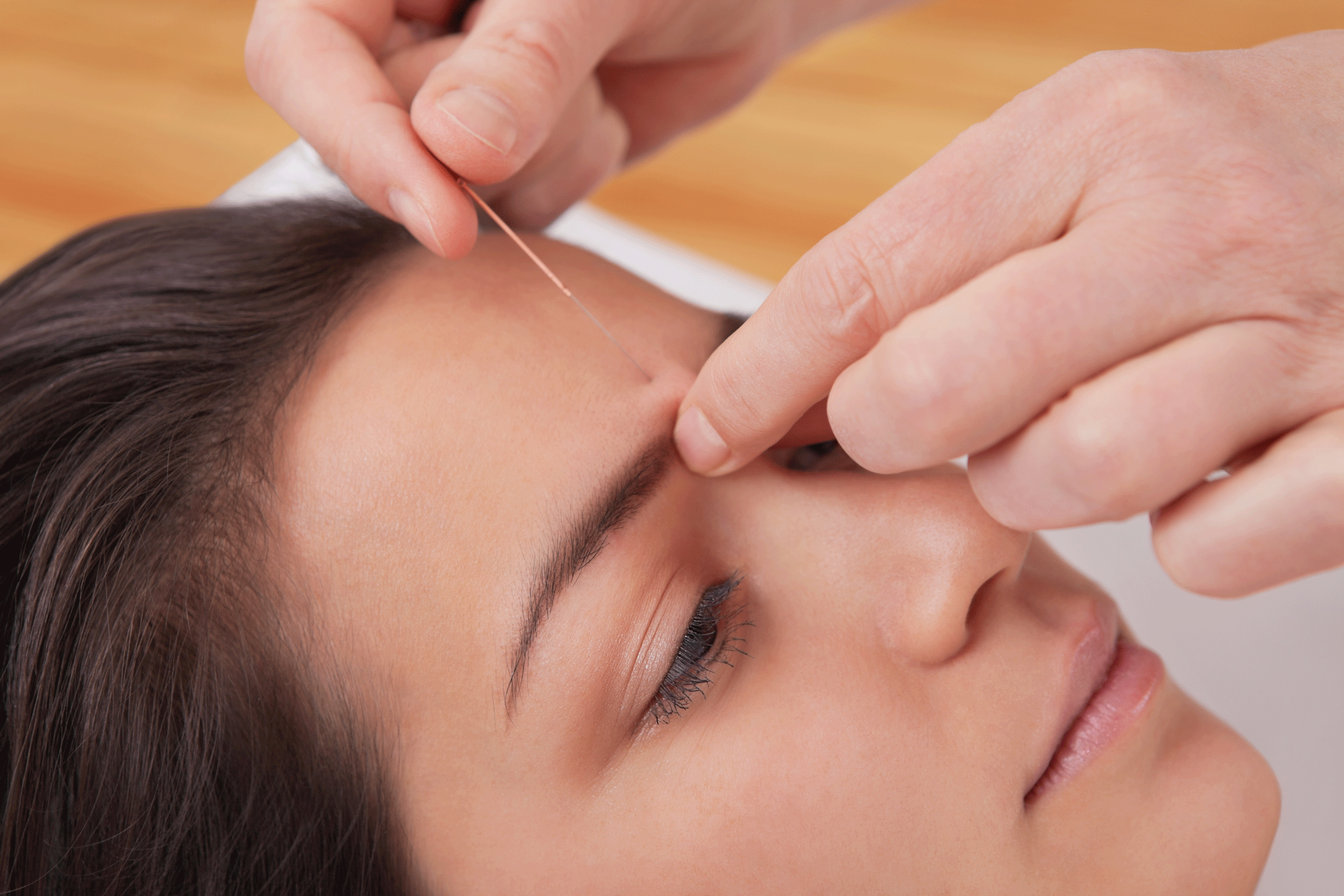
Acupuncture Riverside
it’s a therapeutic procedure consisting of the insertion of very fine needles on specific points in the body with the purpose of promoting physical and emotional harmony, as well as diminishing the perception of pain. Today’s technology has developed fine, disposable needles, which have made modern acupuncture a virtually painless, extremely safe therapy. The acupuncture needles are less than a quarter of the size of the needles employed for injections, and are used only once.
How does acupuncture work?
The theory of Chinese medicine (CM) states that energy (Qi) flows through pathways (meridians) throughout the body. It is believed that disruption of this flow causes diseases. Acupuncture improves and balances the circulation of Qi, thus enabling the body to regulate the metabolism of some hormones, neurotransmitters, enzymes, and other biochemical substances, which include natural painkillers such as endorphins. The National Institutes of Health states that “stimulation by acupuncture may also activate the hypothalamus and the pituitary gland, resulting in a broad spectrum of systemic effects. Alteration in the secretion of neurotransmitters and neurohormones, and changes in the regulation of blood flow, both centrally and peripherally, have been documented.” Acupuncture stimulation affects nerves and causes beneficial reflex responses, and possibly re-patterns the nervous system.
Keep reading...( Acupuncture, Effects of Cancer Drugs) New York Times By Nicholas Bakalar December 26, 2013 11:51 am December 26, 2013 11:51 am 94 Both acupuncture and sham acupuncture were effective in reducing menopausal symptoms in women being treated with aromatase inhibitors for breast cancer, a small randomized trial found. Joint and muscle pain, hot flashes and night sweats are common side effects of those estrogen-lowering drugs. The trial, published online in Cancer, randomized 47 breast cancer patients to eight weekly sessions of either real or sham acupuncture. Those assigned to real acupuncture received treatment with needles in recognized acupoints believed to be helpful in relieving menopausal symptoms. The controls got non-penetrating needles placed in sham acupuncture points. Patients and researchers did not know which patients had received which treatment. The patients kept daily diaries or filled out several questionnaires on the frequency and severity of hot flashes and other symptoms. Patient-reported symptoms, especially hot flashes, improved significantly after both sham and real treatment. There was no statistically significant difference between the two groups. The results may be attributable to a placebo effect, but the scientists suggest that the slight pricking of the skin could cause physiological changes. In any case, the lead author, Dr. Ting Bao, a medical oncologist at the University of Maryland, Baltimore, said there is no harm in trying acupuncture. “Acupuncture as a medical procedure has been practiced for thousands of years,” she said. “It has a minimal risk and potentially significant benefits.” Acupuncture Riverside Keep reading...( Acupuncture - Side effects of Breast cancer Treatments) ABC News Sept. 22, 2008 A new medical study finds that acupuncture, an ancient form of healing that has been around for thousands of years, is as good as, or better than modern medicine in helping ease the side effects of breast cancer treatment. The findings, which were presented today at the American Society for Therapeutic Radiology and Oncology’s annual meeting in Boston, suggest that this ancient therapy can give cancer patients a wide range of benefits above modern medicine. Cancer treatments, like chemotherapy, which kills breast cancer cells, can wreak havoc on a woman’s body, throwing many into menopause with severe symptoms. “I got about two hot flashes an hour,” said Susan Azar, 43, a breast cancer survivor. “Very intense ones where you would break out in a sweat.” The “conventional” remedy for Azar’s chemotherapy-induced hot flashes is a daily anti-depressant. But these pills can produce side effects of their own, including dizziness, nausea and constipation. In an effort to find a way to alleviate some of chemotherapy’s symptoms, Azar enrolled in a clinical trial to receive acupuncture once or twice a week, for 30- to 45-minute sessions. “Two to three weeks into the study, you start to notice the hot flashes, the intensity and the frequency would decline,” Azar said. Acupuncture, an ancient Chinese therapy, practiced for thousands of years, uses very thin needles to reduce pressure at specific points. Most patients do not feel any pain from the needles. Most women in the study said they saw the same dramatic effect from the acupuncture treatment as Azar did. Acupuncture, an ancient Chinese therapy, practiced for thousands of years, uses very thin needles to reduce pressure at specific points. Most patients do not feel any pain from the needles. Most women in the study said they saw the same dramatic effect from the acupuncture treatment as Azar did. “Acupuncture is equal to drug therapy in decreasing hot flashes,” said Dr. Eleanor Walker at the Henry Ford Hospital and lead author of the study. And even better, she said, it has no side effects. At Memorial Sloan-Kettering Cancer Center in New York, many patients with different types of cancer are now offered acupuncture as a routine part of their care. While researchers are still discovering exactly how the treatment works, studies have shown that acupuncture can treat the pain, nausea and extreme fatigue common among cancer patients. Ken Dupuy, a 59-year-old who is currently battling prostate cancer, turned to acupuncture to ease his stress and anxiety. Though Dupuy, himself, was wary of such an unconventional treatment, he said it has worked wonders. “I’m the greatest skeptic going,” Dupuy said. “I’m amazed. I feel extremely, deeply relaxed; every muscle in my body right now is de-stressed.” Barrie Cassileth, chief of integrative medicine services at Memorial Sloan-Kettering, said acupuncture can benefit most patients with “an open mind.” “I think many more patients should try acupuncture,” Cassileth said. “It is easy. It’s pleasant. It’s inexpensive. There are no risks involved.” In some studies, as many as three-quarters of cancer patients report being helped by acupuncture. Acupuncture Riverside Acupuncture, Real or Not, Eases Side Effects of Cancer Drugs
Acupuncture Reduces Painful Side Effects of Breast Cancer Treatments